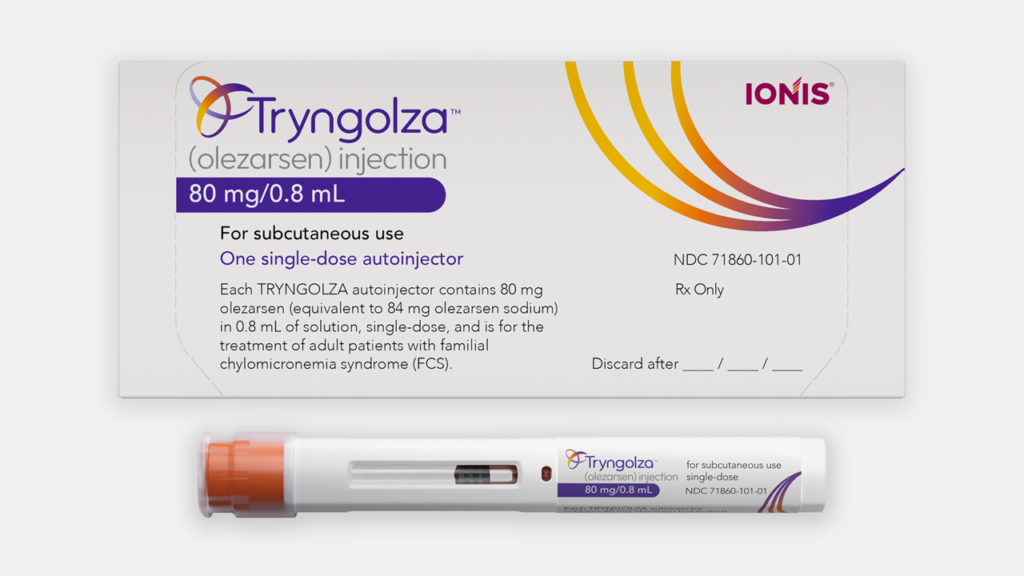For the first time in the US, adults living with familial chylomicronemia syndrome (FCS) have an FDA-approved treatment option. Ionis Pharmaceuticals recently announced that its drug, Tryngolza (olezarsen), has been approved as an adjunct to diet for the reduction of triglyceride levels in FCS patients, who have long faced a condition with no existing pharmacological solutions.
FCS is a rare genetic disorder that prevents the body from properly breaking down triglycerides (a type of fat in the blood), leading to dangerously high levels. This can result in acute pancreatitis (inflammation of the pancreas), a life-threatening condition causing severe abdominal pain and other health complications.
People with FCS often have triglyceride levels higher than 880 mg/dL, compared to a healthy target level of below 150 mg/dL. FCS also severely impacts quality of life, causing chronic fatigue and recurrent stomach pain.
Tryngolza works by targeting a protein in the liver, apoC-III, which regulates triglyceride metabolism. By lowering its production, Tryngolza significantly reduces triglyceride levels in the blood. This treatment is self-administered via an auto-injector once a month, making it a convenient option for patients.
XTALKS WEBINAR: Environmental Sustainability and the Supply of Medicines for Clinical Trials
Live and On-Demand: Thursday, January 16, 2025, at 10am EST (4pm CET/EU-Central)
Register for this free webinar to learn how major pharma companies are working towards environmental sustainability and reducing their environmental impact.
The approval of Tryngolza was based on positive results from the Phase III Balance trial, which showed reductions in triglyceride levels and acute pancreatitis events. Tryngolza is also under review in the European Union (EU), with additional filings planned. Olezarsen is being evaluated in three other Phase III trials — CORE, CORE2 and ESSENCE — for severe hypertriglyceridemia, though it has not yet been approved for this use.
In the Balance study, patients who received the drug showed a 42.5 percent reduction in triglyceride levels after six months, and a 57 percent reduction at the one-year mark. Moreover, only five percent of Tryngolza-treated patients experienced acute pancreatitis, compared to 30 percent in the placebo group.
Some adverse effects were reported, including injection site reactions, decreased platelet count and joint pain. But these were generally mild, and the overall safety profile was favorable.
As Tryngolza becomes available, patients and healthcare providers are optimistic. However, Tryngolza is not the only potential solution in the pipeline.
Investigational drug plozasiran, developed by Arrowhead Pharmaceuticals, is under review for FCS treatment. In clinical trials, it showed up to an 86 percent reduction in triglyceride levels. Plozasiran has also shown promising results in improving lipid profiles, making it another contender in the FCS treatment landscape.
As Tryngolza becomes the first FDA-approved treatment for FCS, Ionis Pharmaceuticals’ evolving pipeline — featuring several Phase III candidates, many in collaboration with leading biotech and pharma companies — underscores its commitment to advancing treatments in a range of areas. With Tryngolza’s availability before year-end, the treatment landscape for this rare condition is poised to offer much-needed relief to the FCS community.












Join or login to leave a comment
JOIN LOGIN